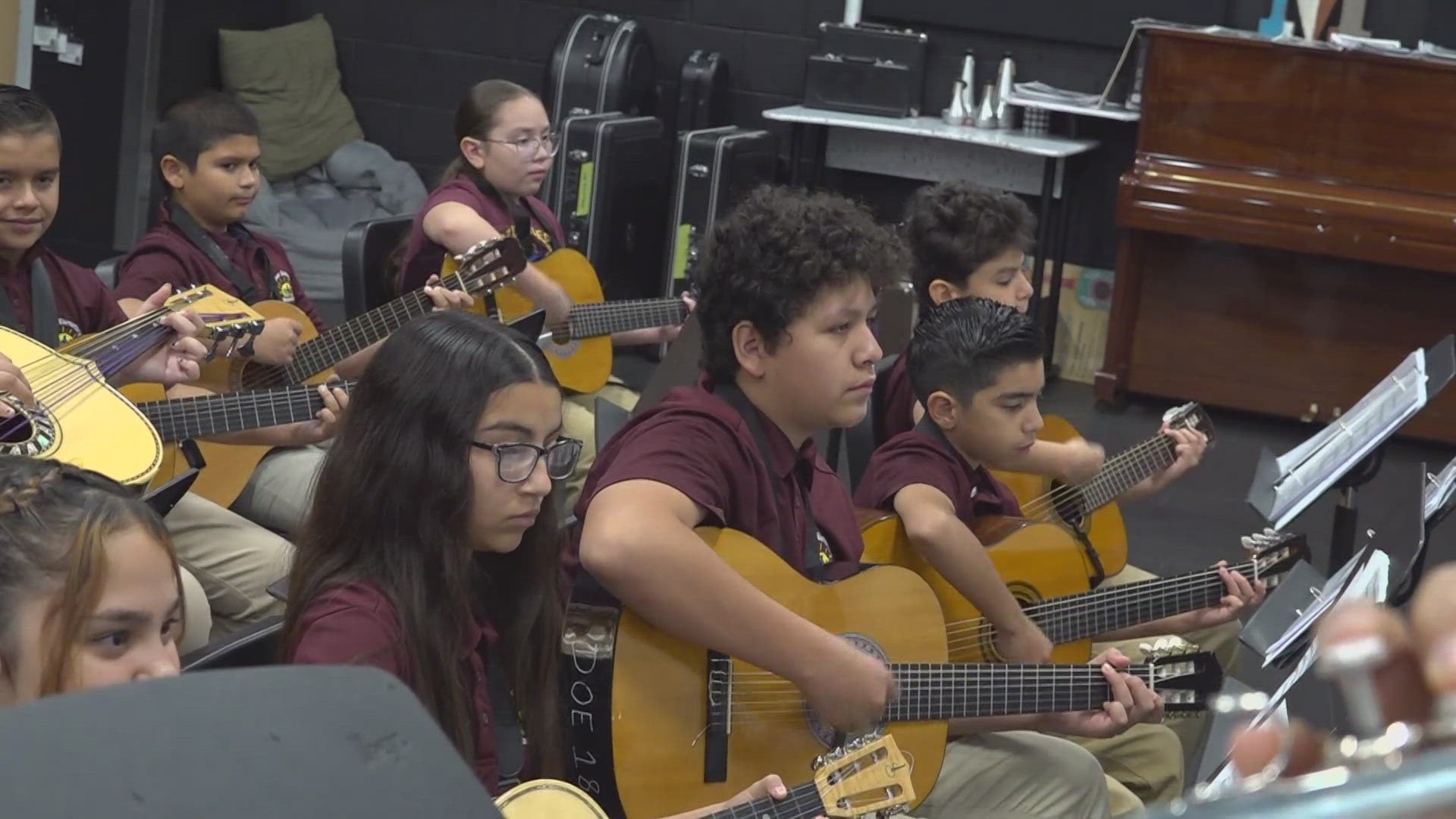PHOENIX — Arizonans of all ages are working to keep the tradition of Mariachi music alive in the Grand Canyon State.
Educators are making sure students are exposed and have the chance to learn how to play mariachi music. The older generations are passing down their love of mariachi music. All with the hope that the music will be shared for generations to come.
'Love, patriotism, heartbreak, and the struggles of everyday life'
Alan Ponce, a mariachi singer who has competed in national singing competitions such as La Voz kids and Tengo Talento Mucho Talento, said the first song he ever sang was "Volver, Volver" by Vicente Fernandez.
"Mariachi music talks about love, patriotism, heartbreak, and the struggles of everyday life," Ponce explained. "It's a way to express our emotions, our joys, and our sorrows. It's a way to connect with our roots and our heritage," Ponce explained.
Ponce said in his opinion there are many "kings" including Vicente Fernandez, Pedro Infante and Javier Solis who have cultivated what mariachi is today.
“It's the identity of people who have gone through struggles, [who] have done all they can to work to sustain their families in previous generations,” Ponce said. “It’s really a symbol of how we experience sweat and tears to get to where we want to be.”
Ponce said women have also made their mark on the music’s identity.
"For many years, most of the credit has been taken by masculine singers, by male singers," Ponce said. "We've seen a lot of women musicians, women mariachis, women soloists, of the likes of Lola Beltran, Aida Cuevas, Amalia Mendoza, and countless others, that have really given an identity for women in terms of mariachi singing."
Teaching the next generation
Efraín Casillas, Arizona's 2024 Teacher of the Year and music coordinator for Tolleson School District, said the music transcends cultural boundaries.
"Mariachi is like a melting pot. It has a little bit of a lot of different styles and music in there," Casillas explained. "We have Bolero, ranchero, ranchera, cumbia, and salsa tunes, but we give them the twist for mariachi."
To create a authentic mariachi group, Casillas emphasized the importance of various components.
"You have to have the armonía (harmony) , which includes the guitarrón, the guitar, and the vihuela, and then we have the strings, the violins, the trumpets, and the voices," Casillas said.
With students ranging from second grade to eighth grade, Casillas's program has become a cornerstone of the community.
"Through this, a lot of the students have told me that they have gone on and been able to go to Mexico and speak and connect to their family in Mexico," Casillas shared.
Casillas shared his students have performed all over, including the White House, and some love the music so much they've come back to help him teach some of the classes at the school.
A family tradition
Mayria Vera, a violinist with Mariachi Continental Azteca, said her group is like a big family and said she was proud to be able to share her music and play alongside her husband, who is also in the group.
"We get to bring the Mexican music here to the United States, and we get to perform for our clients," Vera said. "We get to see them cry, we get to see them laugh. That's the best part."
WE ❤ ARIZONA
Explore amAZing people, places and things across our state on our 12News YouTube playlist here.

